| Listing 1 - 10 of 21 | << page >> |
Sort by
|
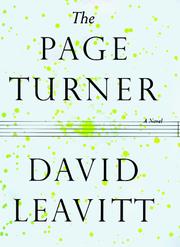
ISBN: 039575285X 0395957877 Year: 1998 Publisher: Boston Houghton Mifflin
Abstract | Keywords | Export | Availability | Bookmark
 Loading...
Loading...Choose an application
- Reference Manager
- EndNote
- RefWorks (Direct export to RefWorks)
Gay musicians --- Fiction
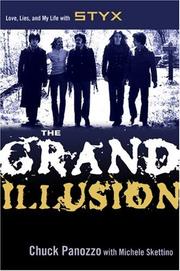
ISBN: 1281126721 9786611126728 0814400809 9780814400807 9781281126726 9780814409169 0814409164 6611126724 Year: 2007 Publisher: New York AMACOM
Abstract | Keywords | Export | Availability | Bookmark
 Loading...
Loading...Choose an application
- Reference Manager
- EndNote
- RefWorks (Direct export to RefWorks)
Rock musicians --- Gay musicians --- Musicians --- Panozzo, Chuck. --- Styx (Musical group)
Book
ISBN: 9780252075780 Year: 2002 Publisher: Urbana : University of Illinois Press,
Abstract | Keywords | Export | Availability | Bookmark
 Loading...
Loading...Choose an application
- Reference Manager
- EndNote
- RefWorks (Direct export to RefWorks)
Homosexuality and music. --- Gay musicians. --- Music --- History and criticism.
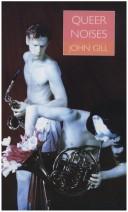
ISBN: 0816627185 0816627193 Year: 1995 Publisher: Minneapolis : University of Minnesota Press,
Abstract | Keywords | Export | Availability | Bookmark
 Loading...
Loading...Choose an application
- Reference Manager
- EndNote
- RefWorks (Direct export to RefWorks)
Gay musicians. --- Homosexuality and music. --- Music --- History and criticism.
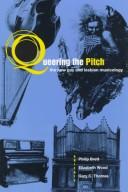
ISBN: 0415907527 Year: 1994 Publisher: New York & London Routledge
Abstract | Keywords | Export | Availability | Bookmark
 Loading...
Loading...Choose an application
- Reference Manager
- EndNote
- RefWorks (Direct export to RefWorks)
Sexuality in music --- Homosexuality and music --- Gay musicians
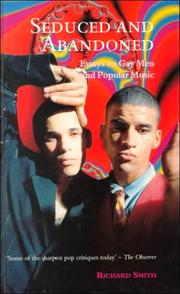
ISBN: 1474286984 9781474286985 9780304333431 0304333433 9780304333431 1474286992 Year: 2016 Publisher: London
Abstract | Keywords | Export | Availability | Bookmark
 Loading...
Loading...Choose an application
- Reference Manager
- EndNote
- RefWorks (Direct export to RefWorks)
"Smith examines the different ways in which gay men use pop music, both as producers and consumers, and how, in turn, pop uses gay men. He asks what role culture plays in shaping identity and why pop continues to thrill gay men. These 40 essays and interviews look at how performers, from The Kinks' Ray Davies to Gene's Martin Rossiter, have used pop as a platform to explore and articulate, conform to or contest notions of sexuality and gender. A defence of cultural differences and an attack on cultural elitism, Seduced and Abandoned is as passionate and provocative as pop itself."--
Sex in music. --- Gay musicians. --- Homosexuality and music. --- Music and homosexuality --- Music --- Musicians --- Sexuality in music --- Gay musicians --- Theology --- Homosexuality --- Related to
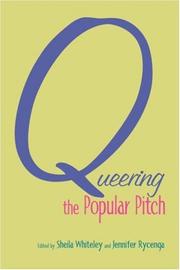
ISBN: 0415978041 041597805X 9780415978040 9780415978057 Year: 2006 Publisher: New York : Routledge,
Abstract | Keywords | Export | Availability | Bookmark
 Loading...
Loading...Choose an application
- Reference Manager
- EndNote
- RefWorks (Direct export to RefWorks)
"Queering the Popular Pitch is a new collection of 19 essays that situate queering within the discourse of sex and sexuality in relation to popular music. This investigation addresses the changing debates within gay, lesbian and queer discourse in relation to the dissemination of musical texts -performance, cultural production and sexual meaning - situating music within the broader patterns of culture that it both mirrors and actively reproduces." --
Gay musicians. --- Gender identity in music. --- Homosexuality and popular music. --- Sex in music.

ISBN: 0415978831 041597884X 9780415978835 9780415978842 Year: 2006 Publisher: New York : Routledge,
Abstract | Keywords | Export | Availability | Bookmark
 Loading...
Loading...Choose an application
- Reference Manager
- EndNote
- RefWorks (Direct export to RefWorks)
When the first edition of Queering the Pitch was published in early 1994, it was immediately hailed as a landmark and defining work in the new field of Gay Musicology. In light of the explosion of Gay Musicology since 1994, a new edition of Queering the Pitch is timely and needed. In this new work, the editors are including a landmark essay by Philip Brett on Gay Musicology, its history and scope. The essay itself has become a cause celebre, and this will be its first full appearance in print. Along with this new historical essay, the editors are contributing a new introduction that outlines the changes that have occurred over the last decade as Gay Musicology has grown
Gay musicians. --- Gender identity in music. --- Homosexuality and music. --- Sex in music.
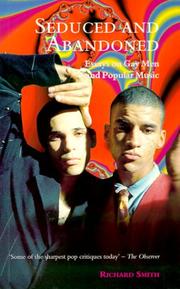
ISBN: 0304333476 1474286992 1474286984 Year: 1995 Publisher: London, England : London, England : Cassell, Bloomsbury Publishing,
Abstract | Keywords | Export | Availability | Bookmark
 Loading...
Loading...Choose an application
- Reference Manager
- EndNote
- RefWorks (Direct export to RefWorks)
"Smith examines the different ways in which gay men use pop music, both as producers and consumers, and how, in turn, pop uses gay men. He asks what role culture plays in shaping identity and why pop continues to thrill gay men. These 40 essays and interviews look at how performers, from The Kinks' Ray Davies to Gene's Martin Rossiter, have used pop as a platform to explore and articulate, conform to or contest notions of sexuality and gender. A defence of cultural differences and an attack on cultural elitism, Seduced and Abandoned is as passionate and provocative as pop itself."--
Homosexuality and music. --- Sex in music. --- Gay musicians --- Homosexuality --- Related to --- Music
Book
Abstract | Keywords | Export | Availability | Bookmark
 Loading...
Loading...Choose an application
- Reference Manager
- EndNote
- RefWorks (Direct export to RefWorks)
From a stage erected in front of the US Capitol, on April 25, 1993, Michael Callen surveyed the throng: an estimated one million people stretched across the National Mall in the largest public demonstration of queer political solidarity in history. "What a sight," he told the crowd, his earnest Midwestern twang reverberating through loudspeakers. "You're a sight for sore eyes. Being gay is the greatest gift I have ever been given, and I don't care who knows about it." He then launched into a gorgeous rendition of "Love Don't Need a Reason," the AIDS anthem he composed with Marsha Malamet and the late Peter Allen. As Callen finished singing, people stood cheering and flashing the familiar American Sign Language symbol for "I Love You." For they knew the song's sentiment rang true for Callen, who had recently announced his retirement from music and activism after a living for more than a decade with what was then called "full-blown AIDS." After the March on Washington, Callen returned to his recently adopted West Coast home, Los Angeles. In the ensuing months, his health rapidly declined, and on 27 December 1993, Callen died of AIDS-related pulmonary Kaposi's sarcoma. Love Don't Need a Reason focuses on Callen's most important and lasting legacy: his music. A witness to the overlooked last years of Gay Liberation and a major figure in the early years of the AIDS crisis, Michael Callen chronicled these experiences in song. A community organizer, activist, author, and architect of the AIDS self-empowerment movement, he literally changed the way we have sex in an epidemic when he co-authored one of the first safe-sex guides in 1983. A gifted singer, songwriter, and performer, he also made gay music for gay people and used music to educate and empower people with AIDS. Listening again to his music allows us to hear the shifting dynamics of American families, changing notions of masculinity, gay migration to urban areas, the sexual politics of Gay Liberation, and HIV/AIDS activism. Using extensive archival materials and newly-conducted oral history interviews with Callen's friends, family, and fellow musicians, Matthew J. Jones reintroduces Callen to the history of LGBTQIA+ music and places Callen's music at the center of his important activist work.
Gay musicians. --- Callen, Michael, --- Michael Callen --- HIV/AIDS --- popular music --- LGBTQ --- history --- LGBTQ activism
| Listing 1 - 10 of 21 | << page >> |
Sort by
|

 Search
Search Feedback
Feedback About UniCat
About UniCat  Help
Help News
News